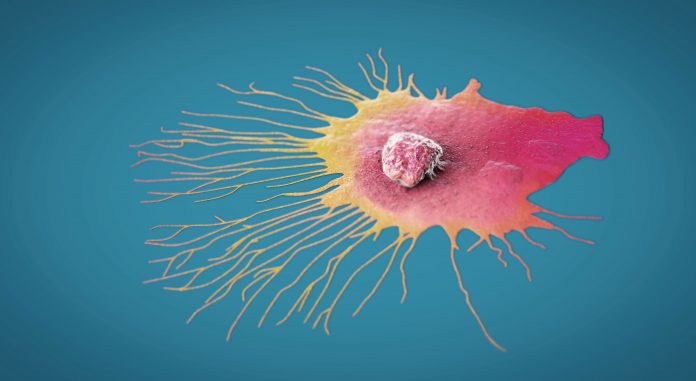
Researchers at Rockefeller University have uncovered a crucial link between sensory neurons and the metastasis of breast cancer.
Published in Nature, their work reveals that sensory nerves within breast tumors secrete a neuropeptide that significantly promotes cancer growth and spread. This discovery suggests that targeting this neuro-cancer crosstalk may help prevent breast cancer progression.
“Hyperactivation of neurons has been observed for tumors growing in the brain, but this is the first time we’ve seen it in an epithelial tumor such as breast cancer,” said Veena Padmanaban, a postdoctoral fellow in Sohail Tavazoie’s lab and lead author of the study. “This is an exciting discovery—no one has seen peripheral nerves release a signal to enhance metastasis before.”
Cancer does not grow in isolation; it develops within a specific microenvironment that includes blood vessels and nerves. Scientists have increasingly recognized the importance of considering this context when developing cancer therapies. The new research demonstrates that sensory nerves secrete a neuropeptide that drives cancer growth and spread through a previously unknown signaling pathway.
“We had evidence that innervation was associated with worse outcomes in breast cancer,” said Tavazoie, the Leon Hess Professor at Rockefeller. “And when we finally looked at breast cancer tumors, we discovered that highly metastatic tumors had recruited much more sensory innervation.”
The research team used mouse models to compare innervation between highly metastatic and less metastatic tumors. They cultured cancer cells alongside sensory neurons, analyzed data to correlate nerve markers with metastatic recurrence in breast cancer patients, and removed sensory nerves within breast tumors. Their results showed that increased innervation not only promotes tumor growth but also enhances the cancer’s ability to metastasize.
“We found that the nerves not only promote the growth of breast cancer cells—they also help cells metastasize and break into tissues better,” Tavazoie explained. “Metastasis is the main cause of death for most cancers—patients are dying because cancer spreads to distant organs. Finding a way to stop metastatic disease is one of the greatest biomedical challenges of our time.”
Further investigation revealed that the enhanced innervation in aggressive tumors was driven by the expression of the SLIT2 gene within the tumor vasculature, which guides axon growth. Once the nerves enter the tumors, they secrete a neuropeptide called substance P, which interacts with the cancer cell receptor TACR1. This interaction promotes tumor growth and metastasis. Additionally, some cancer cells die and release single-stranded RNAs, which activate pro-metastatic genes in nearby cells.
“It had been reported that nerves can physically interact with certain cancer cells and directly influence them, but we observed a neuropeptide signaling mechanism, in which the nerves are releasing a neurotransmitter signal that diffuses to the breast cancer cells,” Padmanaban said. “The release of single-stranded RNAs acts on nearby cells to activate a set of genes. That was unexpected and may have relevance that extends beyond cancer.”
The researchers believe that the findings have strong clinical implications. Elevated levels of the neuropeptide and associated gene signatures are linked to increased metastasis and lower survival rates in breast cancer patients. The scientists also found that treating mice with aprepitant, an FDA-approved TACR1 antagonist typically used to prevent chemotherapy-induced nausea, impeded the growth and metastasis of breast cancer.
“Because aprepitant is already approved and safe, oncologists may consider clinical trials to test the impact of this medication on cancer progression in patients with breast cancer,” Tavazoie said.
Even if aprepitant does not prove to be the most effective treatment, the study offers new therapeutic targets and opens the door to targeted therapies. “Our work may help bridge the fields of cancer metastasis biology and neuroscience, encouraging cancer biologists and neuroscientists to work together and bring each field’s tools to the table,” Tavazoie concluded.





